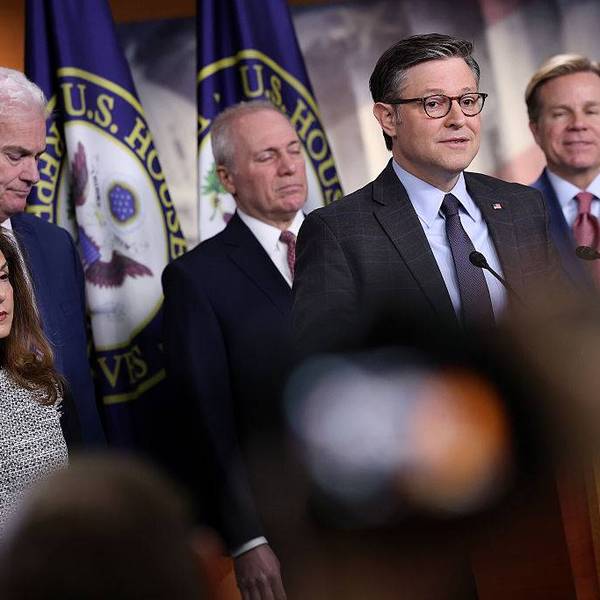The new GOP-dominated Congress convened in Washington, D.C. at noon on Tuesday, holding its first contentious vote in the U.S. House within the hour.
Incumbent House Speaker John Boehner (R-Ohio), who faced long-shot challenges from two Tea Party favorites--Reps. Louie Gohmert (R-Texas) and Ted Yoho (R-Fla.)--needed support from a simple majority of the lawmakers present to secure another two years as the House leader.
He got it, despite the coalescence--just hours before the vote--of a bloc of more than a dozen conservative lawmakers who publicly proclaimed that they would vote against Boehner.
On Breitbart.com, Tea Party Rep. Steve King (R-Iowa) explained his decision, writing of Boehner: "I know the pattern of his strategy and actions for the past 12 years to the point where I can predict the results. I am convinced Congress will not be allowed to restore its Constitutional authority under his Speakership and by refusing to do so, cannot call upon the courts to do so. How then, can I take an oath to the Constitution and put up a vote for John Boehner, almost in the same breath?"
Ultimately, 25 Republicans voted against Boehner and one did not vote. Twenty-nine anti-Boehner votes were necessary to force a second ballot--an outcome Politico predicted would lead to "absolute chaos."
As for Mitch McConnell (R-Ala.), who took the reins as Senate Majority Leader, The Hill reports that he "is giving GOP lawmakers more authority right out of the gate, underlining his message that he won't run the Senate the way Democratic Leader Harry Reid did."
The publication continued:
McConnell is letting the new chairman of the Senate Rules Committee take the lead on whether to undo the "nuclear option" invoked by Democrats and Reid (D-Nev.) that limited the minority's right to filibuster.
McConnell is also allowing an open debate process on legislation to approve the Keystone XL oil pipeline, the first issue the new Senate will take up.
And he's deferring to Sen. John McCain (R-Ariz.), the incoming chairman of the Armed Services Committee, on the timing of a floor debate on Ashton Carter, President Obama's choice to serve as secretary of Defense.
Immediately following the swearing in ceremony, Sen. John Hoeven (R-ND) was expected to introduce the first bill of the session: to authorize the Keystone XL pipeline.
Thus the 114th Congress began--a body beholden to corporate interests, one that may be "the most hostile Congress ever in terms of protecting the environment," and is eager to gut the Affordable Care Act.
And one already grappling with internal dissent.



